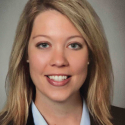Insurance hurdles have been a big concern for Advocacy 101 participant and pediatric rheumatologist Deepika Singh, MD, a full-time practicing clinician at Valley Children’s Hospital in Madera, Calif. “It was just frustration with the whole prior authorization issue that we face every day that led me to see what I could do about it, rather than just commiserating with my colleagues. So I clicked on the online application to attend,” she recalls. Dr. Singh found the program well-designed, concise and informative. “It was broken down into very practical overviews. For example, I thought it was very helpful to learn how to frame your message when talking to different people with different ideologies,” she remarks.
While at the program, Dr. Singh accepted an offer to serve as a volunteer member of ACR’s Insurance Subcommittee of the Committee on Rheumatologic Care, a group she learned more about during one of the breakout sessions. “Prior to this,” she notes, “I only had a vague idea about its function, so I would say this was good timing. Understanding how the subcommittee engages in insurance advocacy definitely helped with my decision.”

Dr. Gagne
Samuel Gagne, MD, fellow in pediatric rheumatology at Nationwide Children’s Hospital in Columbus, Ohio, was also a first-time attendee at the Advocacy 101 program. “The noteworthy part for me and the thing that I found most interesting was just the variety of people and backgrounds that were involved,” he says. “It was nice to see and hear from different physicians, but also from non-physicians who are part of the advocacy process and to see the teamwork, not just within the medical discipline, but with many other disciplines and how that teamwork plays out.”
Dr. Schnell encourages rheumatology fellows and trainees to get engaged in future events. “This is a good way to learn more about how these processes work and how we can effect change. Really, that’s why we’re here: to improve patient care, including patient access to care,” she says. “As physicians, we help our patients through their disease process every day, but advocacy lets us help our patients in a more global sense. There are not many rheumatologists in the country, and the more of us who participate in advocacy, the better care our patients can receive.”
Leslie Mertz, PhD, is a freelance science journalist based in northern Michigan.

